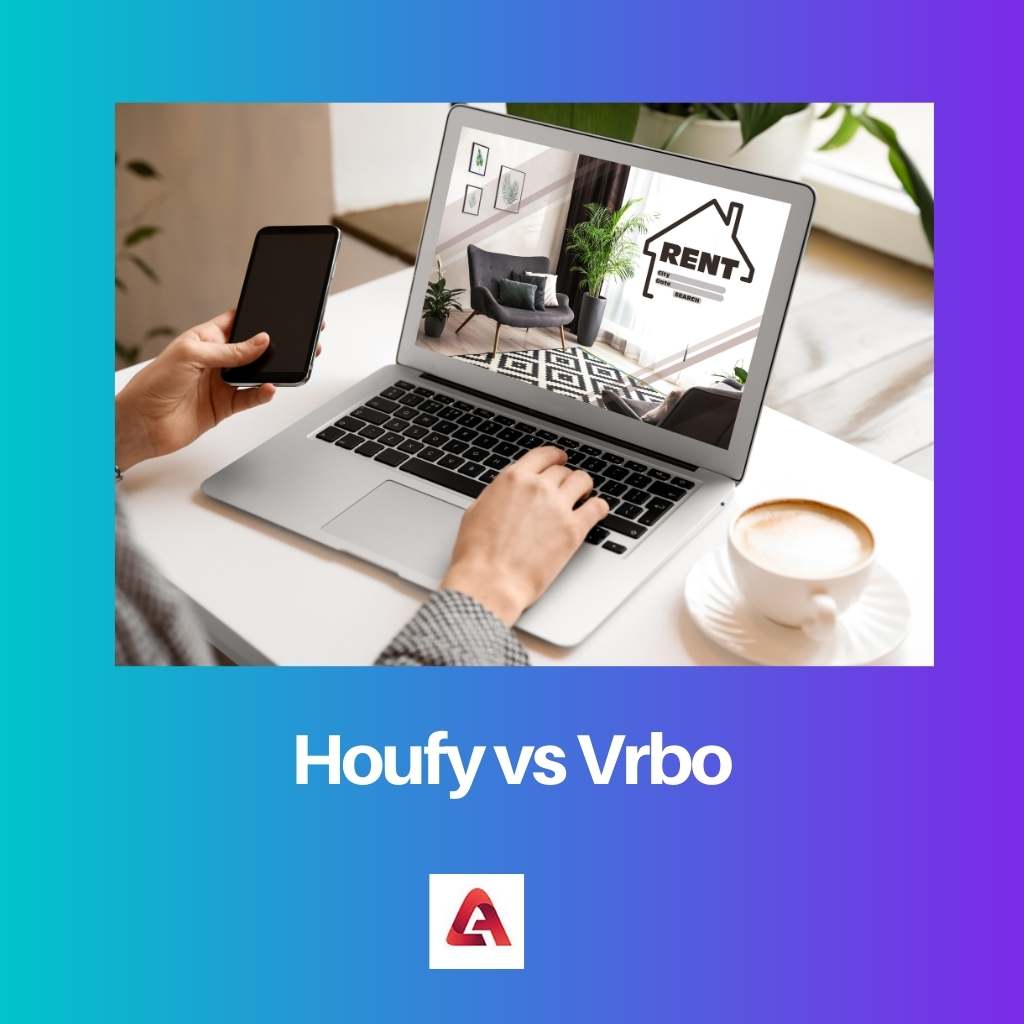Travel platforms are revolutionized and have shifted online. People can now access every tiniest information about a place months before.
The online platforms connect homeowners with potential buyers and customers. The two most common and popular lodging service platforms are Houfy and Vrbo.
Key Takeaways
- Houfy is a commission-free platform for vacation rental listings, enabling property owners to save on fees and maintain direct communication with guests.
- VRBO, owned by Expedia Group, charges service fees to guests and property owners, which can increase the overall cost of bookings.
- Houfy’s platform emphasizes a community-driven approach, while VRBO focuses on providing a wider variety of options and additional features like insurance coverage.
Houfy vs Vrbo
Houfy is a platform that builds connections between buyers and sellers for vacation rentals and real estate properties. It provides free services to customers. Vrbo is a marketplace that provides vacation rentals with some service fees. Vrbo is expensive and has an online booking system.

Houfy is a lodging service provider which does not deduct any charge in the form of service. It is a free platform. The type of rentals available in Houfy is of a particular niche of houses and hotels. The platform has a user-friendly and simple interface.
On the other hand, Vrbo is a rental service that charges 15 – 20% of the total hotel charge from its customers. The services and features of Vrbo are expensive.
The types of rentals available in Vrbo are wide and diverse. It even allows the entire rental of the property to a customer. The parent company of Vrbo initially was HomeAway and was later acquired by Expedia Group in 2015.
Comparison Table
| Parameters of Comparison | Houfy | Vrbo |
|---|---|---|
| Founder | Thijs Aaftink | David Clouse and Lynn Clouse. |
| Headquarters | The United States Austin, Texas, | United States |
| Full form | House For You | Vacation Rentals by Owner |
| Launch date | July 1, 2015 | In 1995 |
| Service fee | It does not have any service fees | It has heavy service fees |
What is Houfy?
Houfy is a platform for finding out vacation rentals and other real estate properties. It acts as a medium to connect properties with potential sellers and buyers.
The user interface is very simple and makes it easy to rent, sell or even find any property or area. Any vacation homes can be booked without the involvement of any middleman or agent.
Houfy stands for “House For You”. It has properties to choose from all over the world. Houfy also provides various tools on the platform, which help build and elevate the members of Houfy.
Such tools include maps, stories, guidebooks, various payment procedures, SEO to promote properties, price quotes, website integrations, and several other factors.
Since Houfy is a social marketplace, it has a wide network and range to reach the property across others. It has paid as well as organic AdSense for property listing or other information about the destination.
It has integration with other social apps like Airbnb for listing.
The workflow of Houfy is based on SaaS. Most of the projects on Houfy are long-term. There is no restriction on the service charges as the platform does not charge any booking fees.
The information on Houfy is safe, reliable, and authentic. It is a trusted marketplace.
What is Vrbo?
Vrbo is a marketplace that promotes vacation rental properties online. It was launched by an American company called HomeAway. Vrbo stands for Vacation Rentals by Owner.
Expedia Group later acquired the company in 2015 and introduced a new logo, pronunciation, and capitalization.
The initial function of Vrbo was to offer the annual homeowner some subscription model. Later, it grew diverse and inculcated other functions and features.
Vrbo has its headquarters in Austin, Texas, United States. The founders of Vrbo are David Clouse and Lynn Clouse.
Vrbo has a specific function that customers love: the properties listed on Vrbo rent the entire home to them.
Customers who prefer personal space and quality time with family would not like sharing the property with other fellow guests and hence love the idea of Vrbo.
The booking procedure is online. It provides filters between the number of bedrooms, amenities, house rules, and other types of properties.
It is a secure marketplace. It even provides a Book With Confidence Guarantee to show the detailed payment of trusted travellers and protects against fraudulent listings.
It even provides a total breakdown of the charges; there is no room for hidden charges. Thus, it expresses transparency between the users and the platform.
Main Differences Between Houfy and Vrbo
- Houfy lists entire places like shared and multiple rooms like small hotels, while Vrbo lists a wide range of properties like apartments, castles, houses, tree houses, villas, condos, and others.
- Houfy provides free-of-cost service, while Vrbo has heavy charges for its service.
- Houfy does not rent out the entire property to an individual, group, or family, while Vrbo has the provision of renting the entire property to its customers.
- Houfy stands for House For You, while Vrbo stands for Vacation Rentals by Owner.
- The headquarters of Houfy is in the United States, while the headquarters of Vrbo is in Austin, Texas, United States.




